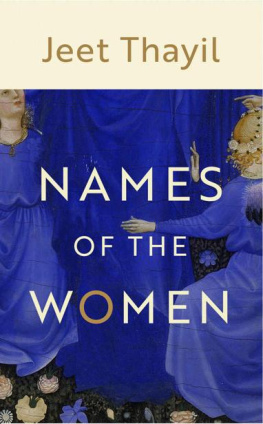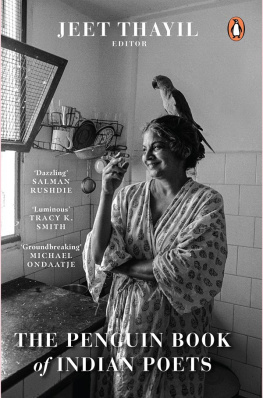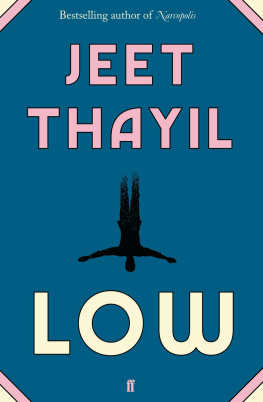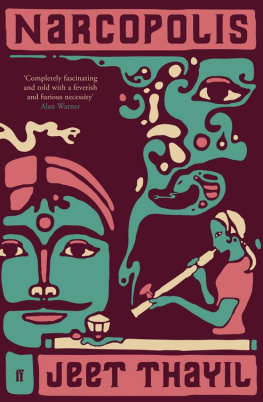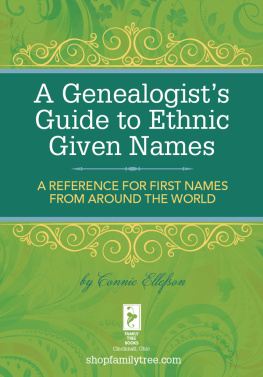Jeet Thayil - Names of the Women
Here you can read online Jeet Thayil - Names of the Women full text of the book (entire story) in english for free. Download pdf and epub, get meaning, cover and reviews about this ebook. year: 2021, publisher: Random House, genre: Art. Description of the work, (preface) as well as reviews are available. Best literature library LitArk.com created for fans of good reading and offers a wide selection of genres:
Romance novel
Science fiction
Adventure
Detective
Science
History
Home and family
Prose
Art
Politics
Computer
Non-fiction
Religion
Business
Children
Humor
Choose a favorite category and find really read worthwhile books. Enjoy immersion in the world of imagination, feel the emotions of the characters or learn something new for yourself, make an fascinating discovery.
- Book:Names of the Women
- Author:
- Publisher:Random House
- Genre:
- Year:2021
- Rating:5 / 5
- Favourites:Add to favourites
- Your mark:
- 100
- 1
- 2
- 3
- 4
- 5
Names of the Women: summary, description and annotation
We offer to read an annotation, description, summary or preface (depends on what the author of the book "Names of the Women" wrote himself). If you haven't found the necessary information about the book — write in the comments, we will try to find it.
Names of the Women — read online for free the complete book (whole text) full work
Below is the text of the book, divided by pages. System saving the place of the last page read, allows you to conveniently read the book "Names of the Women" online for free, without having to search again every time where you left off. Put a bookmark, and you can go to the page where you finished reading at any time.
Font size:
Interval:
Bookmark:


JEET THAYIL was born in 1959 into a Syrian Christian family in Kerala, and educated at Jesuit schools in Bombay, Hong Kong and New York. Keralas Syrian Christians trace their church to St. Thomas, who arrived on the Malabar coast around 50 AD and converted thirteen Hindu families to Christianity, or so tradition has it. Jeets grandmother, Chachiamma Jacob, was the last of the family who recited from memory the hour-long service in Aramaic, Malayalam and Sanskrit that still defines the faith.
ALSO BY JEET THAYIL
FICTION
Low
The Book of Chocolate Saints
Narcopolis
POETRY
Collected Poems
These Errors are Correct
English
Apocalypso
Gemini (Two-Poet Volume with Vijay Nambisan)
AS EDITOR
The Penguin Book of Modern Indian Poets
The Bloodaxe Book of Contemporary Indian Poets
Divided Time: India and the End of Diaspora
LIBRETTI
Babur in London
Talk is Cheap
To Chachiamma Jacob,
Ammu George,
Sheba Thayil,
Tia Anasuya
& Mindy Kaur Gill
Mary, write that they nailed the left wrist first. I heard the sound I made as I broke, my blood and beloved bones leaving me at last. I was tied to the beam so long the feeling in my hands had died, odd mercy when they hammered in the nail. I no longer knew wrist or hand or arm. I knew only pain, as vast and old as the sky. I no longer cared about the body I had borrowed and loved. Its time had passed, as all things pass. I was conscious only of the breaking. They placed one foot over the other and I felt in my calves the strangeness of the posture. I felt the twist of pleasure. I heard myself. I was inside the sound of my splintering. Write, Mary, that everything follows from that moment, the death, the return, the centuries of turmoil and ecstasy, at the moment I fell into the dream and the dream became real. I remembered that when I was a child of seven we went to a town nearby and on the way back we stopped at an inn. I saw a family eating their evening meal. I saw the look on the face of the woman as she put a morsel into her mouth and chewed, and the words came to me unbidden. Take me, Abba, I wish only to die. I saw her face and I knew what would follow as surely as mourning follows the feast and tears follow laughter. Aloud I cried, Abba, I wish to die. And here he has granted my wish, my dear father. More than any of the good and terrible things that happened to me, I remember the day the black wish came, how suddenly, how heavily and for always, twenty-six years ago when I saw a woman eat a meal, and I saw the days wear away one by one, and I shunned the house of feasting for the house of tears. Because that day it pleased my father to show me the face of suffering, and it was his face I saw, the beauty of it and the terribleness that no language can describe. They say it requires no great courage of heart or any great will to look upon such beauty, yet how partial is their understanding. My enemies have not seen the light of his brow, the terrible light that renders them insensible. Then how can they speak of courage or beauty? For it was the face of our Lord I saw upon the woman and it filled me with the sadness. I watched her eat her meal and I recognised the desolation that had come upon her. I knew the fate of the flesh, the fate we eat and take inside us all the holy day, and I wished only to die. All things come alike to all. That day or the next day or a day soon after, my mother told me of the angel who had come to her whose name she had forgotten, everything forgotten but the particularity of his raiment and his words. Imma, I said to her, Gabriel was his name, dont you remember? She said, I remember only what he said, that my son would die on the cross, the terrible words that made me forget every other thing. Then she told me to live the days of my life fully. To learn the ways of men. To seek in my spirit first, then in my mind and at last in my body. To give myself to the answer. To give myself unto wine or pleasure if that was what I wished. But to hurry, for time counts his coin and will settle his account one way or the other. This is what my mother said the angel said, and I say it to you, Mary. I learned the ways of men for they were easy to learn. I learned to disdain the moaning bed, the want and begetting followed by the usual oblivion, the wine and feasting followed by the usual remorse. I learned more in the desert than ever I learned in the houses of men. And I say unto you who hear these words two hundred or two thousand years after me, what good are the victuals if you cannot eat them, but a stranger takes and eats and is satisfied? This is the way of vanity and darkness. You may be the master of a hundred houses and yet your name will be darkness. For how can you feast when your brother fasts? How can you laugh when your brothers house is in mourning and your mother tears herself from broken-heartedness? How can you love when your brother, your child, hangs above you, splintered across?
She wakes too early. She has forgotten how to sleep in the same way she had forgotten how to laugh. Those things she once accepted without question are far from her now. They are part of someone elses life, someone accustomed to the comforts of home and an unchanging place in the world. Now she sleeps in snatches and wakes mystified, as if something terrible has happened while her eyes were shut. If only she had been alert all would be changed, he would be alive, the days on the hill a twist of the mind, nothing more.
In the early dark she goes out to the courtyard to wash. The house comes fully awake. A lamp is lit. She hears the scrape of a bucket lowered into the well. She is wrapping a shawl around her shoulders when Rebekah limps in from the servants quarters with a jug of water. But she cannot drink or eat. She cannot think. She can only say the words that have been repeating in her head through the wakeful hours of the night, as if she were trying to cast a spell and spell out a protection against death. But protection for whom, for herself or the one who died? When everything has been severed, what will remain? A memory, the touch of a hand, someone saying her name. Barely moving, her lips repeat the two whispered syllables that make up her vigil and prayer: Not dead.
She must hurry to the tomb the one called Joseph of Arimathaea made for himself, even if tomb is too grand a word for a hole hacked into the rock, and in that hole a shelf, the dead air washed with a muddy light that rises up from the ground, smelling of insects and dust, a smell that stays in your head for days. Not suitable in any way as a burial place for the Rabbuni. How did it come to pass, such a man laid to rest in so rough a cave, a hole borrowed from a passing stranger? And isnt it true that he might have wanted it this way, who spurned all finery and ease?
She is ready to leave, but Rebekah brings her a bowl and she stares at it unseeing, troubled by a memory from her childhood. The old woman has been with her family for as long as she can remember. She was a second mother to her, because her mother was so far gone into her own troubles she could not care for her daughter. When she was nine years old her father secured the services of a priest to instruct her older brother in the stories of the scripture. But her brother had shown no aptitude for study, had taken after his mother, was subject to fears and terrors that had no roots in reality. The priest came each afternoon and recited prayers that her brother would try to memorise. One afternoon she hid in the alcove near the prayer room and repeated silently each of the priests lessons while her brother, distracted by the light, blurted the mans words at random, words such as mercy and terror and phrases such as smite mine enemies and flatten the godless in their filth. When the priest intoned a lesson about the great whores pendulous dugs and disease-ridden sex she found she could not repeat it. But her brother, suddenly alert, shouted, Disease sex, disease sex. And that was when she saw her mother by her side, holding a blue bowl of fruit, her eyes shiny pools of oil that filled and ebbed, filled and overflowed. Go, she whispered. You are a girl child, dont you know? It is your wickedness to grasp for the fruits vouchsafed to men. As she hissed at her stricken daughter she shielded the blue bowl with her hand. Shielded it from whom? Then it struck her. Its me, the fruit is for my brother and she thinks I might snatch it. The next day her mother made Rebekah scrub her with a birch branch. She watched over the washing, saying the servant must scrub harder, scrub until her daughters skin was raw and ridged with welts. Once a week that year the scrubbing continued. Even now she approaches a bath with reluctance, her skin puckering at the sight of a pail of water in a windowless room.
Next pageFont size:
Interval:
Bookmark:
Similar books «Names of the Women»
Look at similar books to Names of the Women. We have selected literature similar in name and meaning in the hope of providing readers with more options to find new, interesting, not yet read works.
Discussion, reviews of the book Names of the Women and just readers' own opinions. Leave your comments, write what you think about the work, its meaning or the main characters. Specify what exactly you liked and what you didn't like, and why you think so.

